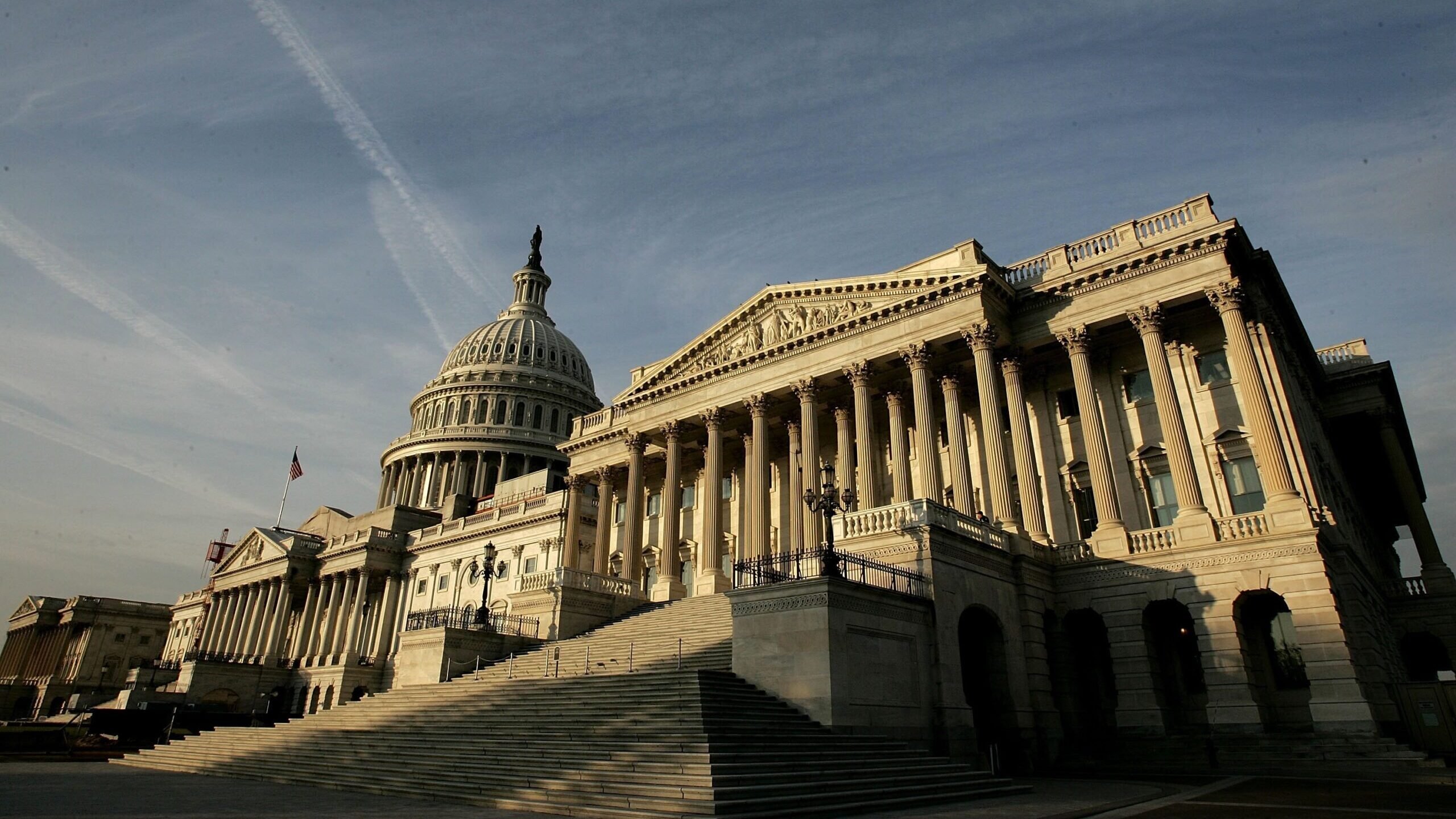
The Biden administration unveiled key details about its FY24 budget request today with more details expected to emerge over the coming days. (Photo by Win McNamee/Getty Images)
WASHINGTON — The White House is requesting $886.4 billion in discretionary funding for national security in fiscal 2024, with $842 billion from that pot bound for Department of Defense coffers — a 3.2 percent increase over the FY23 enacted level.
The administration unveiled its federal government budgetary roadmap today just hours before President Joe Biden discussed it at an event in Philadelphia, Pa., though he largely eschewed the topic of defense. Secretary of Defense, Austin, however, said in a brief statement, “The president’s budget request provides the resources necessary to address the pacing challenge from the People’s Republic of China, address advanced and persistent threats, accelerate innovation and modernization, and ensure operational resiliency amidst our changing climate.
“This budget invests in taking care of our people with the largest military pay raise in over 20 years, and the largest civilian pay raise in over 40 years,” he said.
Austin and the Pentagon did not immediately release additional details about the proposed funding plan for next year. That information is expected to be released on March 13, but administration fact sheets shed some additional light on plans to counter Russian and Chinese military ambitions.
For example, when it comes to Moscow, the request includes more than $6 billion to support Ukraine, the North Atlantic Treaty Organization (NATO), and other European partner states by “prioritizing funding to enhance the capabilities and readiness of United States, allied, and partner forces in the face of continued Russian aggression.”
An additional $9.1 billion is also included for the DoD’s 2024 Pacific Deterrence Initiative, in part, to help the US “sustain and strengthen deterrence.”
The request also includes $37.7 billion to modernize US nuclear capabilities.
As lawmakers and the defense industry await additional insight into service investment plans for next year and beyond, both are getting out ahead with their respective positions for this budget season.
For example, just hours before Biden unveiled his administration’s new budget request, Sen. Roger Wicker, R-Miss. decried what he says will be “inadequate” Pentagon funding.
“Well, I’m going to begin this week and next week, I think, by decrying the budget numbers that are going to come out” of the Office of Management and Budget, Wicker told an industry group this morning during an event on Capitol Hill. “They are going to be inadequate for what our own administration has said we need to do.”
Wicker is the ranking member on the Senate Armed Services Committee and was speaking to the Amphibious Warship Industrial Base Coalition, a lobbying group representing companies that collectively build the US Navy’s amphibious ships. The FY24 budget request comes at a precarious moment for amphibious shipbuilding. In the previous budget request, the service projected it would truncate its anticipated buy of San Antonio-class amphibious transport docks.
Over in the House, vice chairman of the House Armed Services Committee Rep. Rob Wittman R-Va. did not directly address his concerns with today’s budget request either but said it “compromises our national security.”
“Our defense budget must have sustained real growth that out-paces our nation’s record inflation—failing to do so equates to a cut in real dollars,” Wittman wrote. “We have a responsibility to protect taxpayer dollars without compromising our military strength and readiness.”
While Wicker, Wittman and other members of the GOP prepare for a fight over next year’s budget, already represents a $26 billion increase over DoD’s current funding level of $816 billion, and nearly $100 billion more than FY22. Some top Democrats, including Senate Armed Services Committee Chairman Sen. Jack Reed D-R.I., came out in support of those numbers today and said the topline is a “useful starting point.”
“With this strong budget, President Biden is prioritizing the safety and well-being of the American people,” Reed wrote in a statement. “Some will inevitably say the topline is too much, while others will claim it is not enough.”
Meanwhile, the Aerospace Industries Association (AIA) said the ongoing war inside Ukraine, combined with “growing tension” in the Indo-Pacific means that the US must ensure that its “deterrence and defense capabilities can meet this moment.”
“As a key partner in defending America, the US aerospace and defense industry relies on the Administration’s budget request as a roadmap for investments in innovative technology, a resilient supply chain, and a vibrant workforce,” AIA President and CEO Eric Fanning wrote in a short statement today. “We need strong investment to meet the Administration’s National Defense Strategy, address inflation, and build up key munitions and production lines — not only to maintain our own stockpiles but also to support our allies and partners.”
Justin Katz contributed to this reporting from Washington, DC.





















